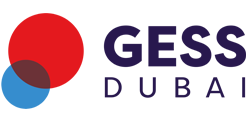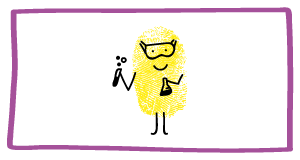An Interview with Hind Al Mualla, Chief of Creativity, Happiness and Innovation at KHDA

Have you been intrigued with the new trends that can be witnessed in the UAE particularly in Education?? We have had the wonderful opportunity to interview KHDA's Chief of Creativity, Happiness and Innovation, Ms. Hind Al Mualla herself. All your burning questions about UAE’s Vision 2021 launched by H.H. Sheikh Mohammed bin Rashid Al Maktoum and more revealed below...
We have been asking all our interviewees to tell us what ‘Innovation’ means to them. Being the Chief of Creativity, Happiness and Innovation, we are quite intrigued to know your views on it...
Innovation comes from being curious and asking what’s next. Working in education, it’s vital that we always ask what’s next. We view innovation as more of a mindset than a set of specific set of actions. At KHDA, we want to enable the innovation mindset, so we do this by creating a trusting and supportive environment that understands the value of failure. When people are comfortable to voice their ideas and unafraid to try them out, innovation – in all its shapes and forms – will flow naturally.
In 2016, KHDA first undertook the School of Hearts initiative to measure students’ happiness in over 35 schools. Please tell us why ‘Happiness’ in Education is so important today?
Happiness is not only important in education; happiness is important in life. We think deeply about the purpose of education and the skills that will best enable our children to lead fulfilling lives into their adulthood. We want to prepare children for the tests of life, not a life of tests. To do that, we must focus not just on academics, but on nurturing their character and empowering them with ability to live well with themselves and with each other.
As our world changes, the skills that students will need to thrive also change. Education that sees its purpose beyond exams and academic results understands that students will be best served by a positive mindset, and will empower them with the skills to enable their own happiness throughout their whole lives.
KHDA, along with a delegation of principals and teachers from Dubai’s schools had visited IPEN in Dallas recently. Can you share with us some of International trends that were witnessed there? Why must we focus on Positive Education?
A team of principals and KHDA colleagues attended the first Festival of Positive Education in Dallas last year, and we’re looking forward to the next one in June 2018. Positive education is designed to enrich the ‘whole child’ – not just their brains, but also their hearts. It views education through the ‘double helix’ of academics and character, and aims to give children the skills to thrive and lead happy, productive lives.
Positive education practice takes many forms and we certainly see it being adopted by forward-looking schools all around the world. Some schools focus on social/emotional learning, some aim to instil a strong sense of community service in their students, while others again take a different approach. No matter what positive education looks like in individual schools, the overarching message is clear: to prepare students to live well in the future, education must take a long view and look beyond academic performance.
There is a lot being said about the UAE’s Vision 2021 launched by H.H. Sheikh Mohammed bin Rashid Al Maktoum, Vice-President and Prime Minister of the UAE. The UAE is said to transform its economy into a model where growth is driven by knowledge and innovation. What can we expect in terms of the future of Education?
We are on the cusp of exponential change. Technology has already started to disrupt traditional notions of work, jobs and careers, and this disruption will no doubt have an impact on our understanding and expectation of education. We must remember that technology does not have ethics, and as we begin to rely more on automation and artificial intelligence in our everyday lives, the importance of teaching students values and skills will become ever more crucial. The education sector of the near future will prioritise skills such as empathy and creativity, and will produce students who understand that the purpose of their education is not only to improve their own lives, but also the lives of others.
Looking a little further into the future, education will most likely not resemble what we see as education today. Working with the Dubai Future Accelerators programme, we’ve been excited to meet with start-ups which are effectively working to ‘uneducate education’; to deconstruct how, why, what and from who we learn and create models of scale that meet each and every student’s individual needs.
We know that KHDA is always launching exciting educational projects in Dubai. Can you please tell our readers some of the new projects and initiatives that you have been working on?
You’re right – we are working on a number of exciting projects! The most wide-reaching project we’re involved with right now is the Dubai Student Wellbeing Census. This is a five-year project which includes 75,000 students in Grades 5 to 9. The results will help us to better understand how well student wellbeing is being supported in schools so that we can put together more effective policies to improve it. Data from the census will also enable schools to devise wellbeing strategies that are directly respond to their own students’ needs.
Dubai Saturday Clubs is now in its third season. This initiative brings students from schools all over Dubai together with social entrepreneurs to design innovative, service-led solutions for their communities. There’s such a wonderful atmosphere during the Saturday Clubs and it’s great to see students so excited to make positive change in their community.
As well as this, we’ve partnered with Ecoventures and Ground Up Initiative from Singapore to develop an eco-campus in Hatta. Visits to this campus will enrich students’ understanding of the environment around them and bring them closer in harmony with nature.
Could you please share some tips or best practice with teachers and schools trying to adopt innovation, happiness in the classroom to improve the learning environment?
The best start teachers can make to improve their students’ wellbeing in the classroom is to focus on their own wellbeing. This is important not just because happier teachers enable better learning at school, but because happiness is important in our lives, regardless of profession.
In a more practical sense, there is a wealth of resources available online for teachers who want to integrate more positive education practices into their classrooms. The International Positive Education Network has many free materials available in Arabic and English, all with the purpose of improving wellbeing and building character in students. The YouTube channel that complements the What Works series of events for teachers in Dubai includes videos of each presentation at What Works for the past four years, and is a great resource for learning about what other teachers in Dubai are doing to bring more happiness to their schools and classrooms.
How can teachers motivate and inspire their class to excel not just in academics, but in creativity and extra-curricular activities as well?
We’ve found that students don’t really need much motivation to get involved in creative and extra-curricular activities! At certain points in students’ lives, the focus of education becomes that of academic performance, and it’s important during these times to continue to engage in activities that add to our happiness. Again, the best place to start is with ourselves. When we as teachers, as school leaders, as policy-makers, make the commitment to get involved in creative and extra-curricular activities in our own lives, we are much better placed to remind students not to neglect these areas either.
As with anything in life, the more you put into it, the more you get out. If we want our children to excel solely in academics, we can focus on solely academics. However, if we also want to nurture our children’s creativity, innovation and happiness, then we must make sure to focus our energy on bringing out those qualities as well.
“Practicing mindfulness has profound impacts on children’s health and overall well-being,” says Rola Ghadban, mindfulness and well-being coordinator at Greenfield Community School. What advice can you give all our readers about mindfulness in the classrooms and the workplace?
Mindfulness is a simple way to bring more calm and perspective into our lives every day. We concentrate on where we are and who we are at that specific time, knowing that these short periods of quiet give us strength to navigate through the noise and bustle. The great thing about mindfulness is that it’s not a skill that takes time to learn – it’s a ready-made tool that we can use to bring perspective to our lives and enable us to be happier. Schools which integrate mindfulness into their everyday routines will be giving their students a gift that will benefit them for the rest of their lives.


